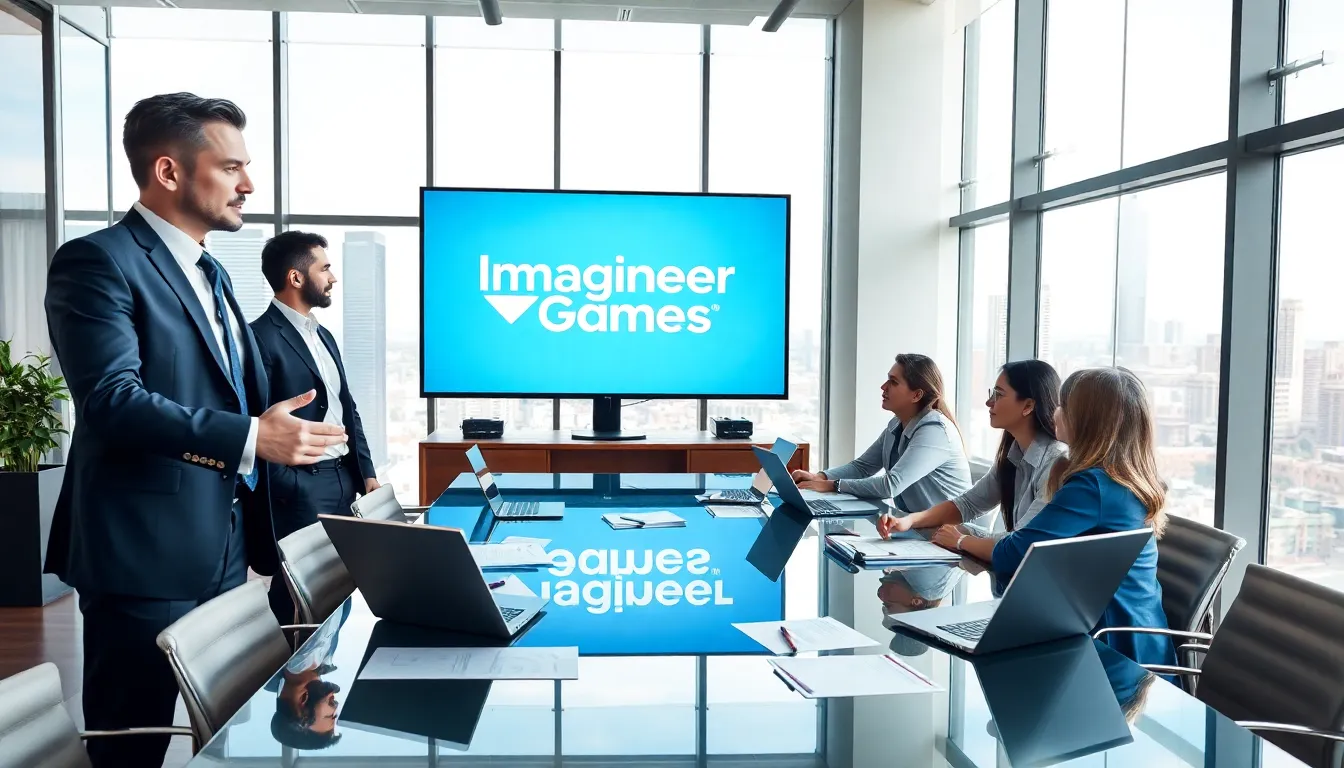Table of Contents
ToggleIn a world where first impressions are everything, what’s the number one thing you reach for in your digital toolbox? It’s not your favorite gaming console or that shiny new gadget. It’s an email address. Think of it as your gaming avatar but for the professional realm, it represents you and your brand. So buckle up as we investigate into the realm of email addresses and why crafting the perfect one could be the ultimate power-up for ImagineerGames.
Understanding the Importance of a Professional Email Address

When it comes to credibility, the email address you use says a lot about you. Whether it’s for a small indie game or a large gaming corporation, a professional email address can set the tone for your interactions. Imagine receiving an email from a company using something like ‘[email protected].’ What’s the takeaway? It may not scream ‘professional,’ right? In contrast, using an email like ‘[email protected]’ gives an instant nod to legitimacy.
There’s more. A professional email establishes trust. When potential collaborators or customers see an official domain, they feel safer interacting with your brand. This trust can lead to higher engagement rates. Plus, a uniquely crafted email address assists in building brand awareness. With email’s importance in marketing and communication, you wouldn’t want to diminish your brand’s potential by using something generic.
How to Create a Memorable Email Address for Your Gaming Brand
Choosing the right email address isn’t as tough as it may sound. Start by picking a domain. This could be your business name or a catchy phrase that reflects your brand’s essence. An address like ‘[email protected]’ is straightforward, while ‘[email protected]’ adds a playful touch.
Next, keep it simple. Avoid overly complicated structures. Long strings of numbers, symbols, or complex words might confuse your customers. Think of it as a user-friendly game interface: the simpler, the better.
Also, make sure your email conveys professionalism yet retains creativity. You want potential gamers or business partners to remember it, but you also want it to maintain a level of respectability. End it off with an appropriate extension. While .com remains the gold standard, consider other extensions that align well with your specific brand.
Best Practices for Managing Communication in the Gaming Industry
Managing communication effectively is essential for ImagineerGames. First, set up categories for emails. This strategy can help prioritize your incoming messages, be it collaboration requests, customer inquiries, or marketing campaigns. Establishing categories leads to less chaos in the email inbox jungle.
Next, adopt a friendly yet professional tone in correspondence. Gamers often appreciate informal chat, but keep it respectful. Engage them with phrases like ‘level up your game’ or ‘we’re on a quest together,’ and that will foster rapport.
Regularly updating your team on communication strategies promotes consistency. Everyone should be on the same page, especially about the voice and tone that reflect your brand. Over time, this consistency enhances brand identity and can even become a hallmark of your organization.
Don’t forget the follow-up. A quick “Hey there, just checking in” goes a long way in nurturing relationships. Keeping the conversation alive can lead to new opportunities and partnerships.
Email Marketing Strategies for ImagineerGames
Now, let’s jump into email marketing. One of the most cost-effective ways to reach your audience lies within email campaigns. Create a stunning newsletter template that captures your brand’s style. Content can range from game updates, exclusive offers, or behind-the-scenes peeks into your development process. This strategy will not only keep your audience engaged but strategically positioned to increase conversion rates.
Segment your email list. Not every gamer is interested in every game. Tailoring your message ensures that it resonates with the intended audience, be it indie game fans, sports enthusiasts, or RPG lovers.
Incorporate strong calls to action. Phrases like ‘Join the quest.’ or ‘Start your adventure here.’ prompt engagement. And here’s a pro tip: Use A/B testing for your subject lines to discover which ones spark the most interest. This practice allows you to optimize each campaign, leading to improved email performance.
Common Issues and Solutions When Using Email Addresses
Using email can sometimes feel like a boss battle with unexpected challenges. Common issues can range from spam filters to emails getting lost in the abyss of the inbox.
First off, make sure your email doesn’t look spammy. Use straightforward language in your subject lines and avoid using words like ‘free’ or excessive exclamation marks, these can land your email right in the spam folder.
Another common problem is deliverability. Ensure that your email practices comply with legal requirements like CAN-SPAM laws. This includes providing an easy way to unsubscribe and making sure your email list is clean. Unsubscribe rates can hurt your reputation, affecting future deliverability.
In case an email gets lost, maintain a strategy for checking in. If your email remains unanswered, a polite follow-up can save the day. Sometimes it’s just a case of being buried under a pile of digital messages.
The Future of Email Communication in Gaming
As technology continues its rapid evolution, what lies ahead for email communication in the gaming industry? With the rise of instant messaging and social media, email remains a formidable tool, especially for official announcements or detailed communication.
The integration of Artificial Intelligence is predicted to streamline email management significantly. AI could help sort through emails, prioritize responses, and even suggest replies. Imagine a world where pressing inquiries simply get managed with automated efficiency.
Also, a wider acceptance of personalized emails is on the horizon. Tailoring messages based on user behavior can foster deeper connections with gamers. This adaptability asks for a shift in thinking: from broad emails to creating conversations that are tailored to the gamers’ experiences.




